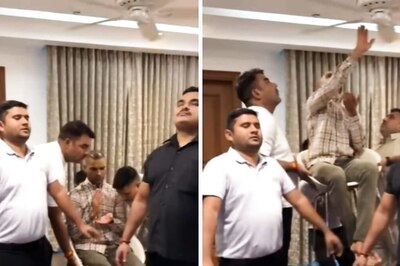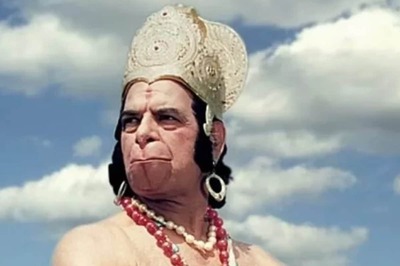
views
New Delhi: The lawyer for the Sunni Waqf Board, one of the Muslim parties in the politically sensitive Ayodhya land dispute case, has confirmed that a compromise offer was made to the Hindu parties through the mediation panel on Wednesday.
News18 had on Wednesday reported that the Supreme Court-appointed mediation panel to resolve the Ram Janmbhoomi-Babri Masjid land dispute filed a report in the court in a sealed cover, which sources said is a "sort of a settlement" between some Hindus and the Muslim parties.
“Outside the court, before the mediation committee, parties have put across their case and reached some terms that I can't disclose right now. Good things are never late, if you want to do things you can do them at the last moment also,” Shahid Rizvi, advocate for the Sunni Waqf Board in the case, told News18.
A five-judge Constitution Bench, led by Chief Justice of India Ranjan Gogoi, on Wednesday reserved its judgment in the case after a marathon 40-day hearing. The panel’s report, filed on Wednesday morning, was taken up by the bench in chambers, where parties involved are not allowed.
Since the land dispute case is a civil suit and not a criminal matter, a settlement can be reached anytime before the verdict is announced. The judgment will be delivered before November 17, when CJI Gogoi is set to retire.
Sources close to the mediation panel said apart from the Sunni Waqf Board, Nirvani Akhada, Nirmohi Akhada, Ram Janmabhoomi Punruddhar Samiti and some other Hindu parties are in favour of settling the contentious land dispute.
However, two main stakeholders — the Vishwa Hindu Parishad (VHP)-backed Ram Janmabhoomi Nyas and Ram Lalla deity (a suit filed by the deity includes Nyas as one of the plaintiffs), and six other Muslim parties which have filed appeals — are not party to the proposed “settlement”, making it a partial deal at best.
The interested parties have sought a settlement under the provisions of The Places of Worship Act, 1991, which provides that no dispute with regard to any mosque or other religious places, which have been constructed after demolition of temples and are existing as in 1947, would be raised in a court of law. The Act, however, excludes the Ram Janmabhoomi-Babri Masjid dispute from its purview.
Sources said Muslim parties have suggested the land in question can be given in acquisition to the government and the Waqf Board can submit a select list of Archaeological Survey of India (ASI) mosques, which can be made available to them for prayers.




















Comments
0 comment